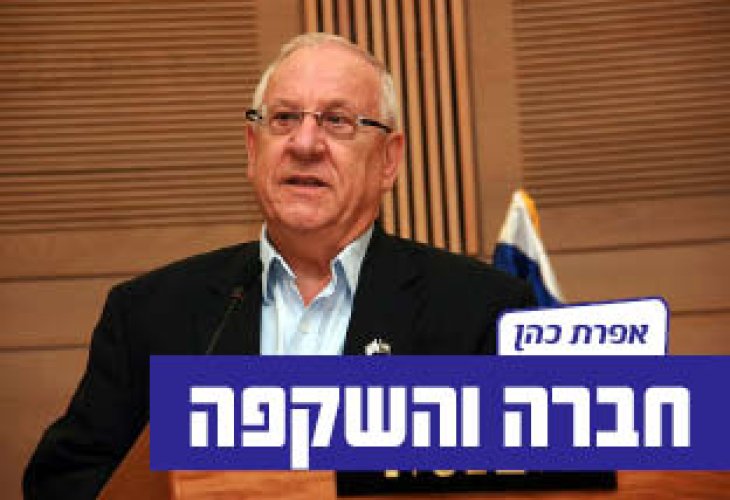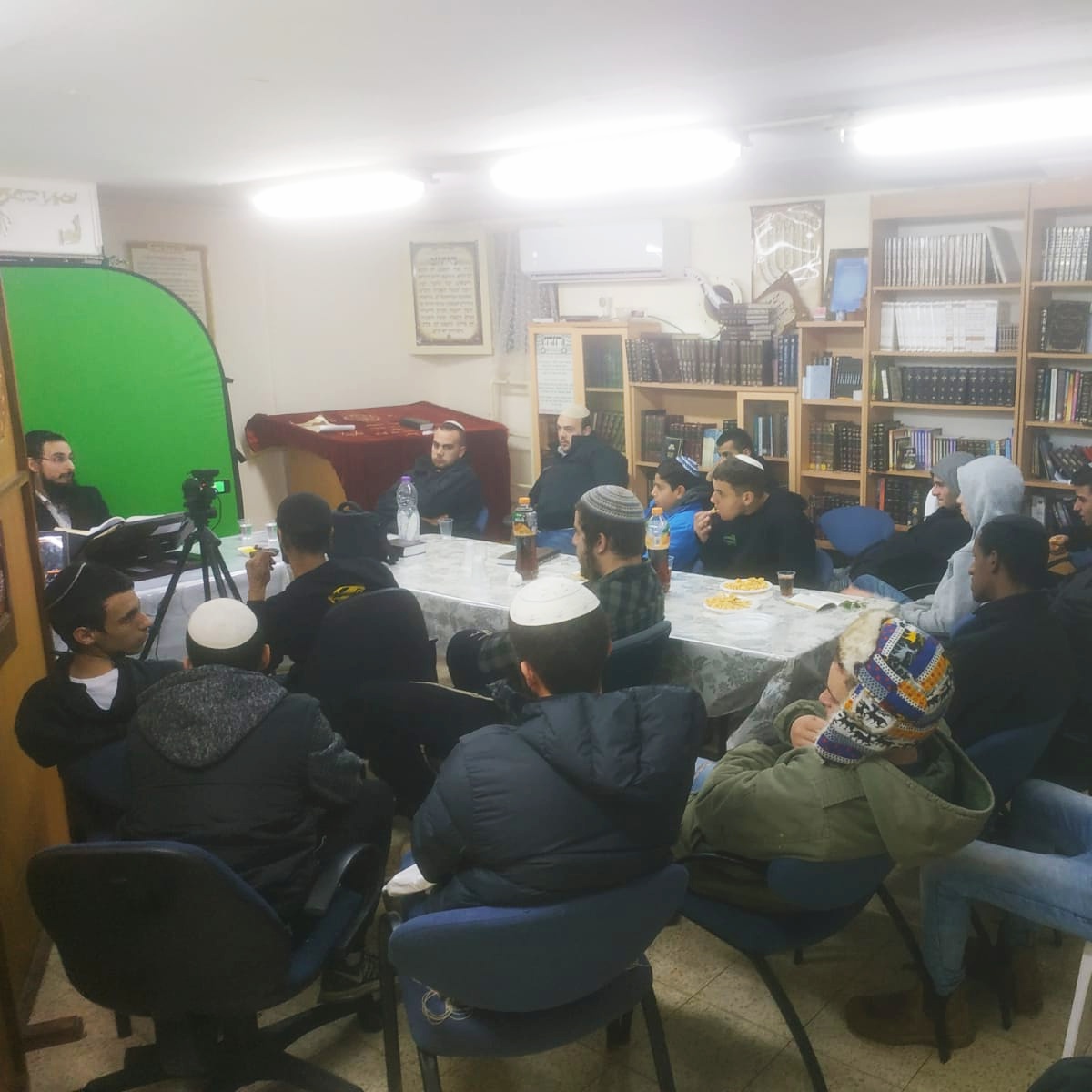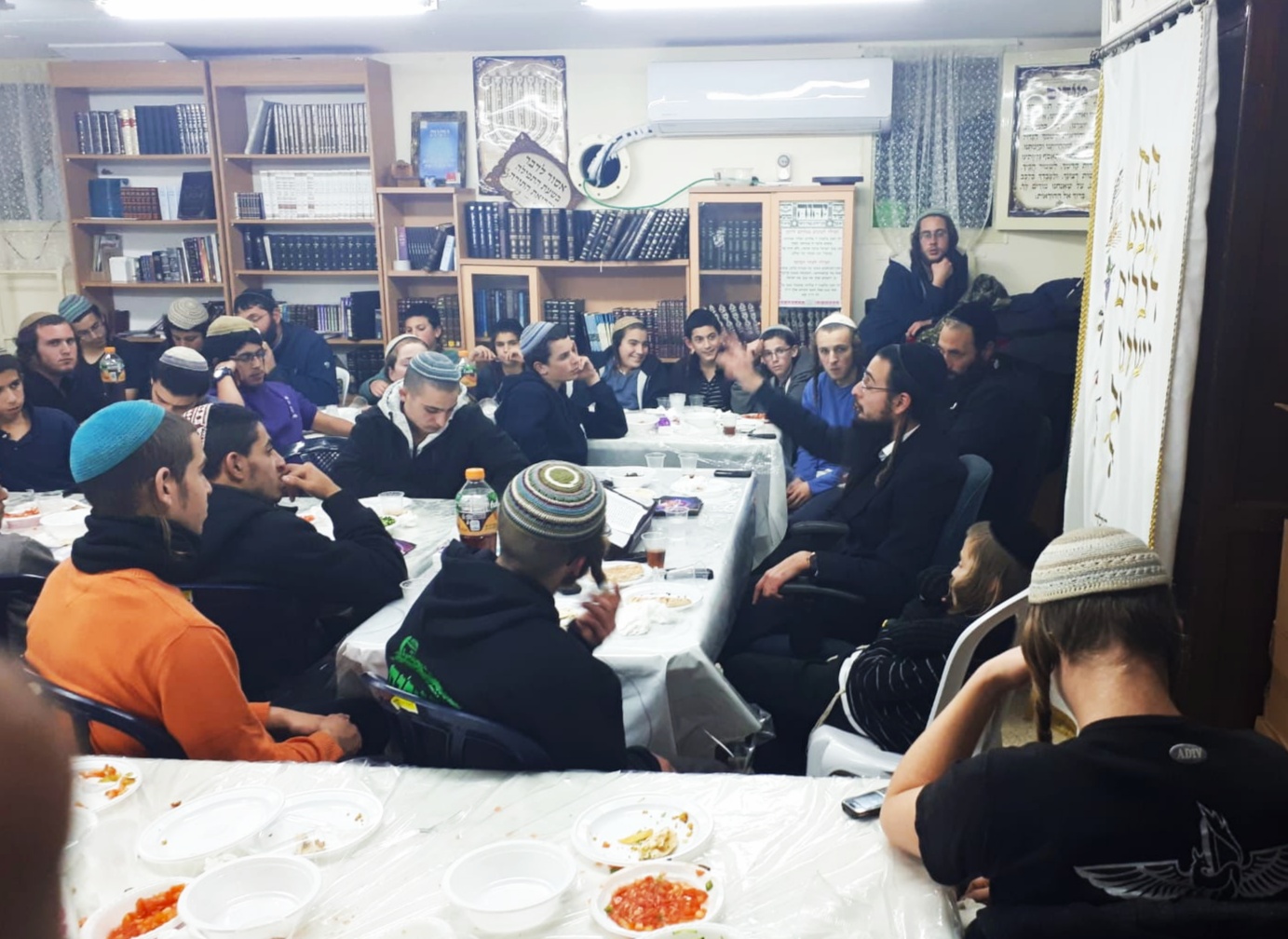During the Shiva for His 5-Year-Old Son: Rabbi Maor Shukron Established a Yeshiva for Jewish Outreach
Rabbi Maor Shukron, who was raised in a religious family but studied in secular schools, found a miraculous return to Jewish faith. What institution did he establish in memory of his 5-year-old son? An inspiring interview with Rabbi Maor Shukron.
 Binyahu Shukron, of blessed memory. Five years old at his passing.
Binyahu Shukron, of blessed memory. Five years old at his passing.Rabbi Maor Shukron was born in Bat Yam, the youngest child of a religious family. "My parents enrolled me in a secular school, even though all my siblings attended religious schools," he recounts. "It's not entirely clear why, but it seems there were reasons I needed to be there. In third grade, I was able to strengthen two friends, and as I grew older, one of them reached out to me again—he still wears a kippah today."
When he reached fifth grade, young Maor asked his parents to transfer him to a religious school. "I felt I couldn’t stay in a secular place any longer, and from that point until tenth grade, I studied in religious institutions," he says. "However, when I turned 16, I started to stray spiritually. I no longer wanted to study until 8 PM, and playing my guitar, which I had known since I was six, attracted me much more." He left the yeshiva and asked his parents to let him attend a music yeshiva in a settlement in Samaria. "My father was worried about traveling to that area and refused to even consider it. After much deliberation and consultation, I decided to attend a secular boarding high school that focused only on preparing us for exams. Although my father wasn’t pleased with that either, I didn’t give up." At high school, Rabbi Shukron was the only student wearing a kippah in his class. "I was embarrassed to be the only religious one, and over time, my hair grew long, and my kippah shrank until it fell off completely. I abandoned everything and became even 'anti' about anything related to Judaism."
Not 'Returning to the Faith' but 'Following Hashem's Will'
In twelfth grade, a girl who was very interested in spirituality joined the class below him. "She was raised in a completely secular home, with a Holocaust survivor grandfather who was anti-religion, and almost no tradition at home. Yet, she was drawn to spirituality, and I noticed she was reading a book about reincarnation," he recounts. "I explained to her that kabbalistic studies are not for everyone, especially not for beginners, and when she asked what she could study, I offered to teach her. I introduced her to the Tanakh, and we had many conversations about spirituality and Judaism."
Over time, their closeness grew, leading to a change in Rabbi Shukron’s attitude towards her Jewish studies. "It affected me personally, and it bothered me that she was getting closer to what I had left behind. I wanted to live an outside life. At that time, I was part of a band that performed on Shabbat, and when I realized she might become observant, I vehemently opposed it. I told her I didn’t agree with her studying more Judaism, and whenever I saw her performing a certain commandment, I asked her not to do it again. Meanwhile, she started attending Torah classes with a friend and was very eager to get closer." For eight months, the two were in a constant struggle. "I portrayed Judaism as unbearably difficult, and added exaggerated details from my imagination. I told her that she had to wear turtlenecks, long sleeves, and skirts down to the floor, and said that sorting is forbidden, leading her to think it applied every day, not just on Shabbat. Yet, whatever I said, she replied, 'Really? Okay, if that’s what Hashem wants, that’s what I'll do.'"
The girl didn’t refer to her journey as 'returning to faith,' but as 'following Hashem’s will.' "One day, she wanted to know how far I was standing and placed a Tanakh on the floor," he recounts. "Naturally, I immediately picked it up and kissed it, and she smiled. However, we had many arguments, and at one point she cried and said that we would never be happy together. Either I would be happy and she would be sad, or vice versa."
Rabbi Shukron completed high school, and while he was waiting to join the army, a friend suggested visiting a yeshiva in Tzfat. "I was obviously against it," he says, "but my friend said I would just sleep over at his place, and from there we would go on trips." Maor agreed and went to Tzfat. Learning about a great rabbi there, he decided he had to meet him. "After the synagogue service, I asked one of the gabbais to arrange a meeting with the rabbi. He said the rabbi was busy and it was impossible, so I told him I came all the way to Tzfat just for this talk." After receiving the rabbi's consent, young Maor posed an interesting question: "How can I prevent a girl from returning to Judaism?" The rabbi answered that there was no way to do that and suggested that Maor come to strengthen his studies at the yeshiva. Maor was not ready for this. "I was volunteering at MDA, I had a band, and mainly I was worried about what people would say. Also, I wanted to enjoy myself, travel abroad, and feel like I was making the most of my life."
After the visit to Tzfat, Maor found it hard to sleep at night. "I constantly thought about the fact that I knew Judaism was the truth, but at the same time, I wanted to do what I wanted and enjoy all worlds. I was very afraid of what my friends would say, and this internal conflict left me restless."
Right after the Tishrei holidays, he showed up at the entrance of the yeshiva. "The rabbi said to me, 'I knew you would come back,' and I started attending classes and deeply examining myself. Mentally, I knew the truth, but it was hard for me to impose it on my heart, which wanted other things. Once, when everyone in the yeshiva was making tzitzits, I didn’t want to. The rabbi asked me to make them anyway and wear the tzitzit. After I did, I read that actions lead the heart, and I decided that would be my return path, and I would impose my mind over my heart. Initially, I wore the tzitzit tucked inside my pants, still without a kippah, and when I went back home I told that girl I wanted to return to faith. Both of us managed to strengthen and establish our home together."
Some years later, Rabbi Shukron met Rabbi Eliezer Shlomo Shik, of blessed memory, and began getting closer to him. "I started a new journey of strengthening in my service to Hashem, in faith, prayer, and spiritual growth, gaining many forces and strength. In retrospect, I saw how much these forces helped me later, when our son Binyahu, of blessed memory, was killed in a car accident."
In Memory of the Child: A Vast Endeavor for Jewish Outreach
The couple moved to Beit El, where they suffered a painful blow when their 5-year-old son Binyahu died in a tragic car accident as he left kindergarten. "During the shiva for Binyahu, we organized a lesson at our home, and even teenagers from the community came—those I wouldn’t have dreamed would come," says the bereaved father. "The lesson inspired them, and they asked me to teach more classes at the youth club. For eight months, I taught there three times a week, and the boys who were outside the framework started to come closer."
This closeness grew stronger, and soon the teenagers asked the rabbi to establish a beit midrash for them, for the period after high school. "We opened a yeshiva named after our son, 'Tiferet Binyahu,' where we studied mornings and afternoons. The studies included Tanakh, halacha, and faith, all in a way that showed how sweet the Torah is. We also continued with evening classes open to the public. Today, three and a half years after the yeshiva was founded, 8 of our graduates have already established faithful homes in Israel," Rabbi Shukron joyfully shares. "One of the amazing things is that the place is sustained by the tithes given by the students and graduates of the yeshiva. With these tithes and the building donated by the council, we continue to push forward."
 Rabbi Maor Shukron teaching his students
Rabbi Maor Shukron teaching his studentsThe Torah dissemination project continued, and began to include studying with younger teenagers. "They too were already out of yeshiva, but knew where the truth was, and it was only their desires for life's pleasures that pulled them away. Over time, these young people also drew closer, even purchasing a camera to film the lessons and upload them online. We had the privilege of publishing two booklets: 'Sam Hachayim' - about addictions and getting out of them, and 'Haderch L'mahapach' - for personal empowerment and increasing desire. There's also another book coming soon, called 'Derech Emunah Bacharti,' about the story of Binyahu's, of blessed memory, passing."
"Seven years ago," concludes Rabbi Maor, "I visited a great tzaddik, and he told me that I needed to establish a wide-reaching outreach project. I laughed at the time because I didn’t understand what he meant. Also, after the passing of Binyahu, my wife told me that I needed to work with the youth. I told her I didn’t know how to reach them, and that if Hashem wanted, He would send them to me. That same week, eight kids without kippahs came to my lesson, and from there, everything started. The righteous rabbi then told me that I should establish something large, that would extend beyond the bounds of the settlement, and indeed the aim is to grow further, as the thirst seen in the field is very great."

How does it feel to lose a son at the same moment when Hashem grants you a new son? This is exactly what happened to Rabbi Maor Shukron, and since then he hasn’t stopped growing stronger and strengthening others in faith, which he says has grown a thousandfold. Watch his story that left no eye dry, courtesy of 'Light for Youth':
To purchase the booklet 'Haderch L'mahapach – The Change Begins from Within' by Rabbi Maor Shukron at Hidabroot Shops click here or call: 073-222-12-50

